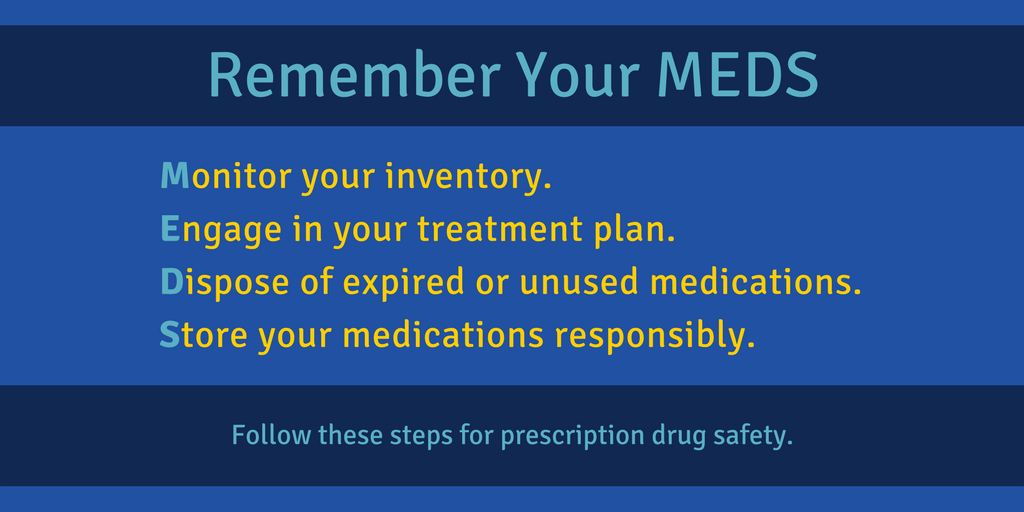It’s important to keep yourself and those around you safe when it comes to prescription drugs. Making a few simple changes in how you think about and act around prescription medications can make a big difference in staying safe. Start with these prescription medication safety tips; it’s as simple as Remembering Your MEDS!

M – Monitor your inventory.
Keep inventory of your medications. An easy way to keep track of the medications in your home is by using a home medication inventory list. This should include the medication name, date filled, original quantity and treatment schedule (how much and how often it should be taken). This will not only help you make sure your medications are being taken only as prescribed, but it will also give you a convenient reference to share with doctors and pharmacists. Having this knowledge handy will help medical professionals have a complete picture of your medication history and ensure your regimen is the best fit possible.
E – Engage in your treatment plan.
Keep lines of communication open with your doctor. Discuss whether there are alternative treatment options before taking certain medications. In addition, you should talk to your doctor if you experience any side effects, feel your medications are ineffective or develop a tolerance to or dependence on any medications. If you feel your prescription medication isn’t right for you, be sure to let your doctor know. Always consult your doctor before adding or dropping a medication or altering your dose or schedule in any way.
D – Dispose of expired, unused or unwanted medications.
The DEA hosts National Prescription Drug Take Back Days twice a year (in April and October). However, if you miss an event, many local police stations, pharmacies and college campuses have prescription drug disposal drop boxes. Locate a year-round collection site near you here. You can also learn how to dispose of medication safely at home.
S – Store your medications responsibly.
You should never share any prescription with another person, including close friends and relatives. According to the CDC, most people who abuse prescription opioids get them from a friend or relative. To do your part to make sure your medications are not accessed or used in a way that is unsafe or illegal, be sure to store prescriptions in a secure place, out of reach of others (including youth and adult family members, as well as visitors). Ideally, these types of medication should be locked in a storage container to which only you have the combination or key.
If you think you can Remember Your MEDS, please consider signing our pledge to share with us your commitment to doing your part in preventing prescription drug misuse and abuse.
